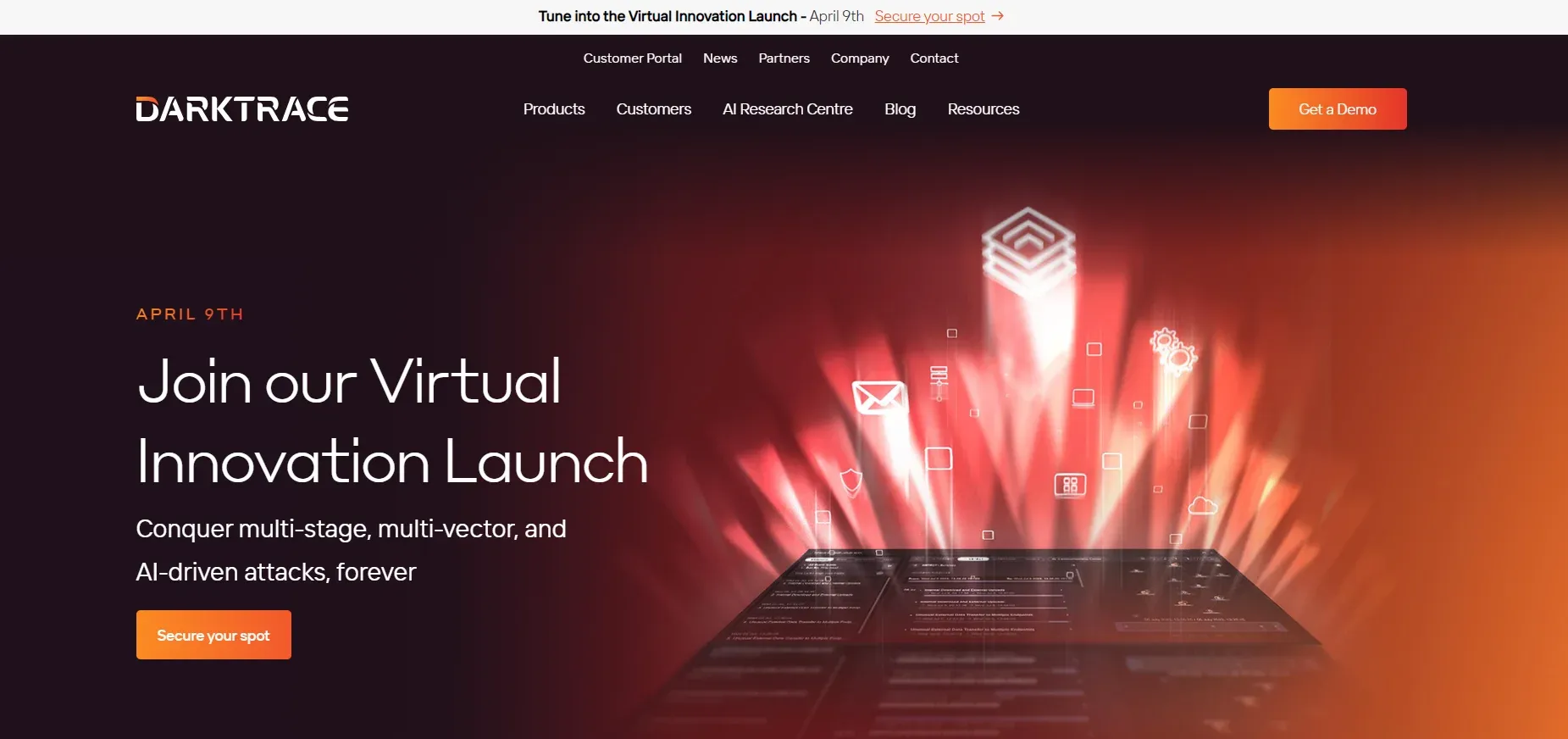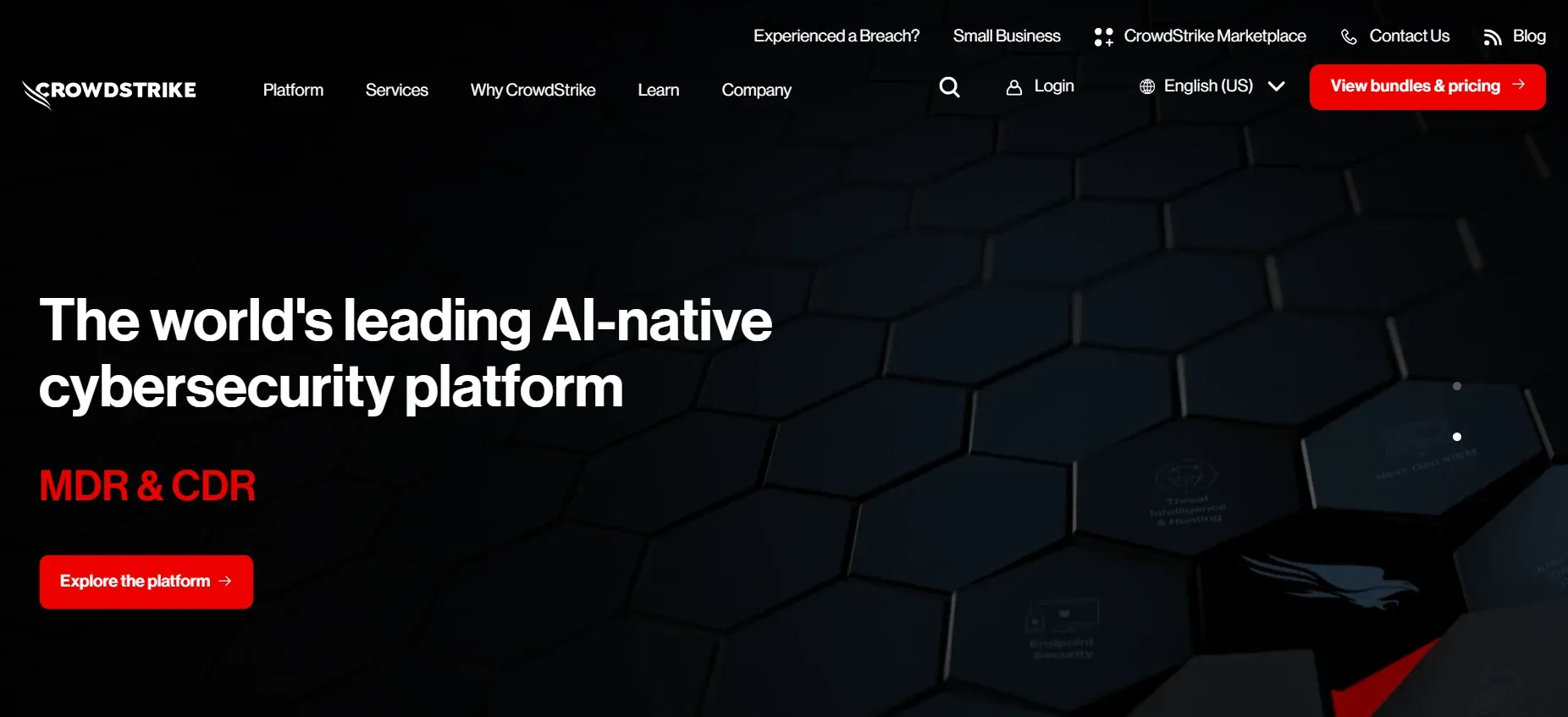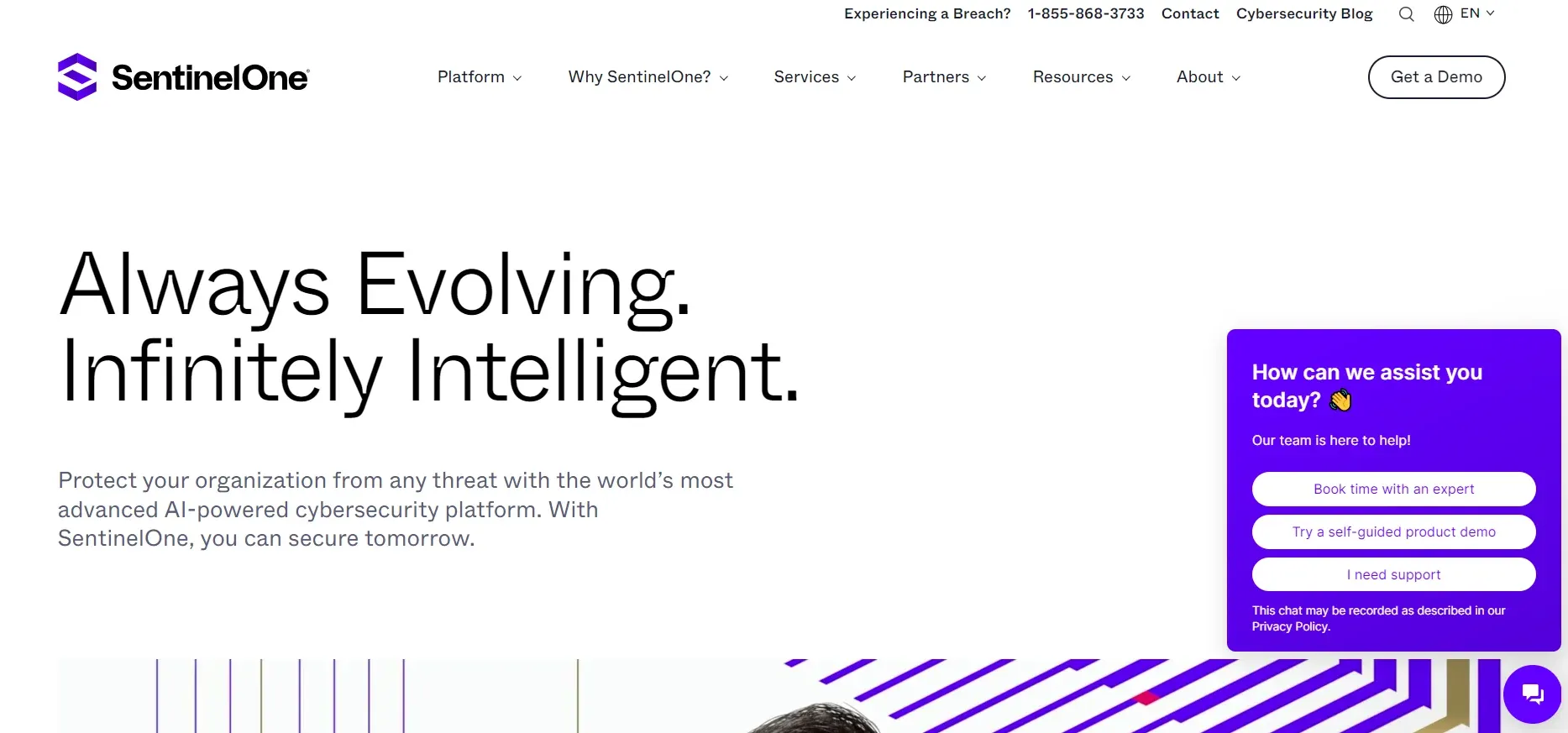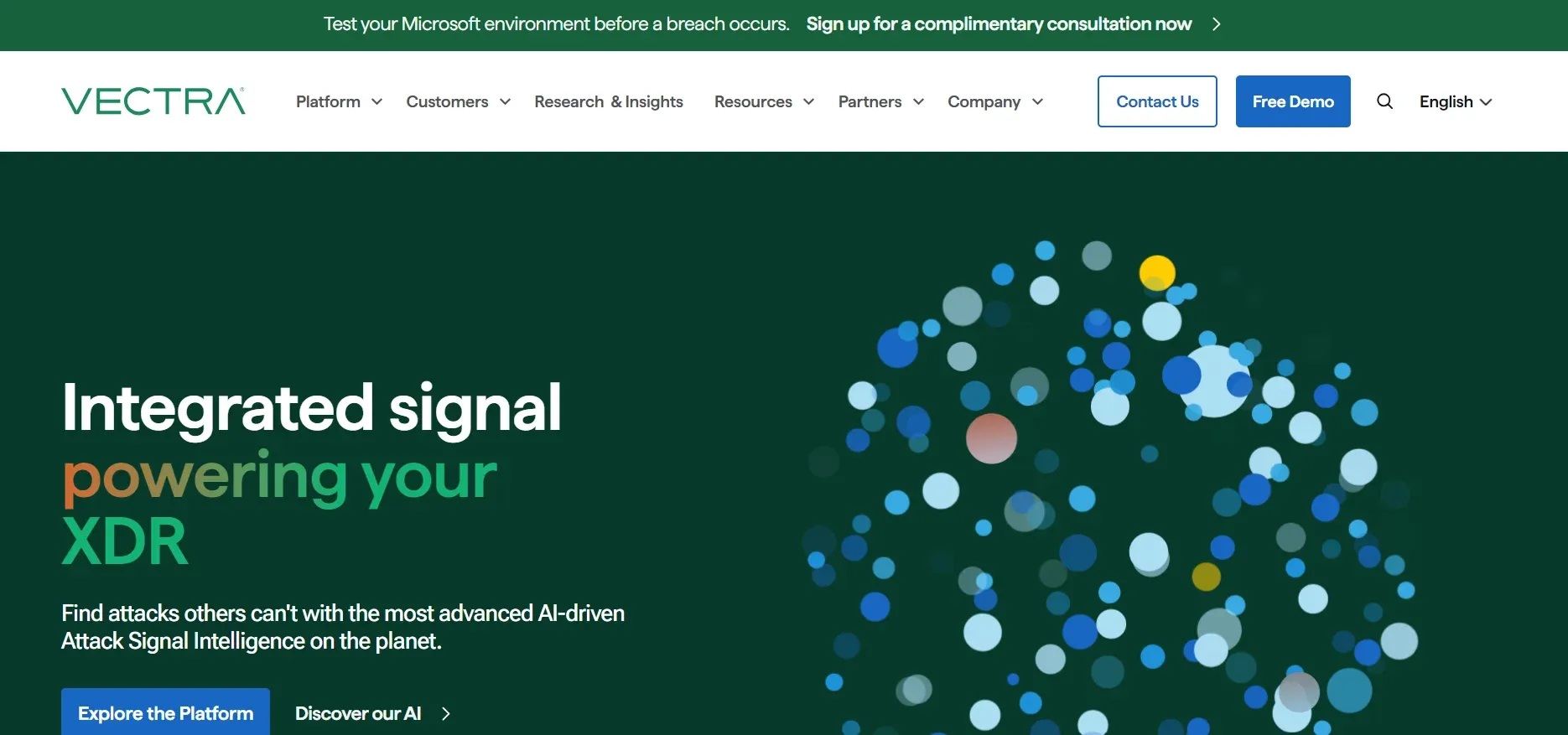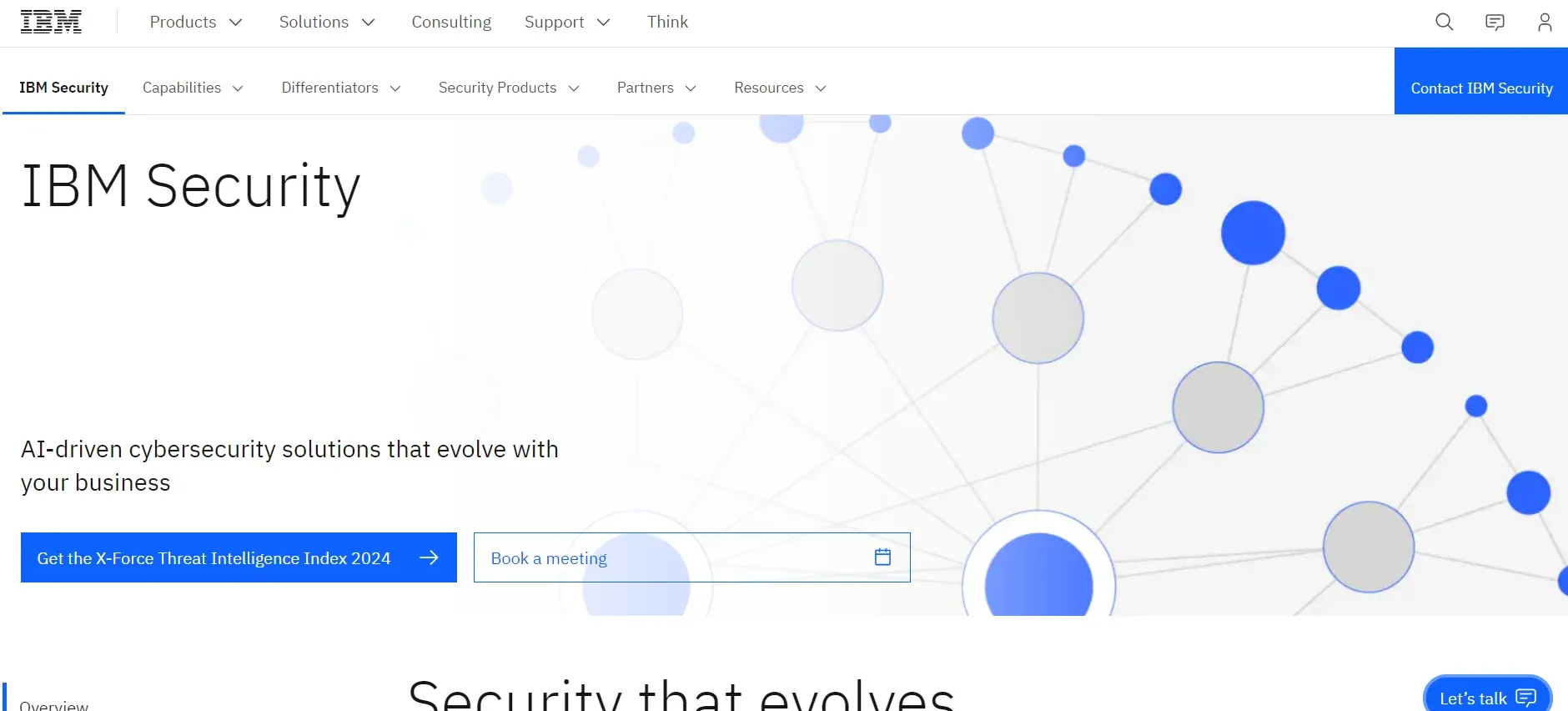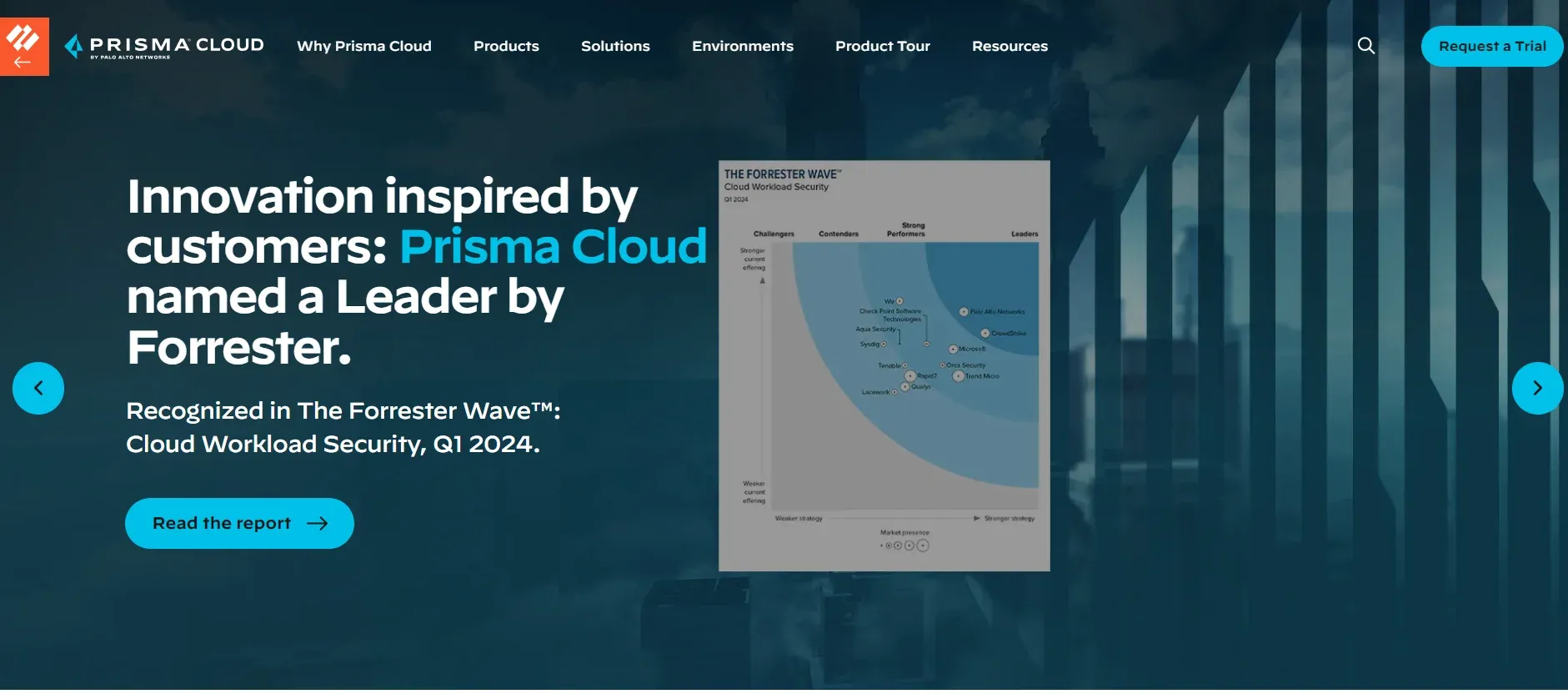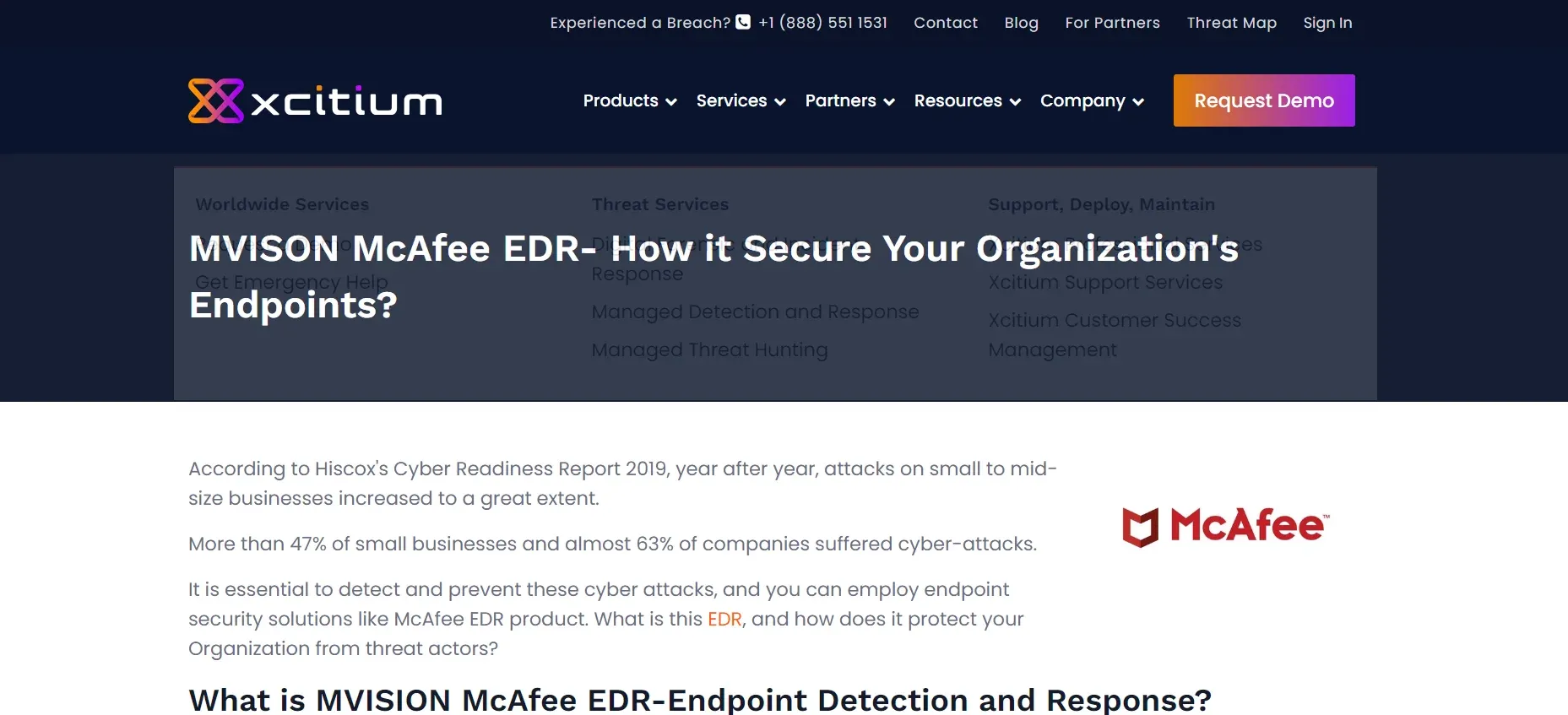In the digital age, cybersecurity is one of the most important and difficult fields. IT security professionals must use artificial intelligence (AI) to strengthen their defenses and safeguard their assets as cyberattacks get more sophisticated and common. Artificial intelligence (AI) systems for cybersecurity employ predictive analytics and machine learning algorithms to quickly identify, stop, and mitigate intrusions. They can also assist IT security professionals with task automation, workflow optimization, and enhanced decision-making.
Based on their features, benefits, drawbacks, and costs, we will evaluate some of the top artificial intelligence (AI) solutions for cybersecurity professionals in 2024 in this blog post. We'll concentrate on the subsequent standards:
The kinds of cybersecurity solutions they provide, including data loss prevention, network security, threat hunting, and endpoint protection.
Their primary AI capabilities include threat intelligence, incident response, behavioral analysis, anomaly identification, etc.
The advantages and disadvantages of utilizing them, including compatibility, performance, scalability, and ease of use.
The pricing structure and associated expenses, including subscription, licensing, per-endpoint, per-IP, etc.
Darktrace
Leading AI security technology Darktrace assists IT security professionals in locating and eliminating new threats including ransomware, insider threats, and zero-day assaults. It makes use of a self-learning methodology to comprehend typical behavior shown by every device, user, and network and to identify any abnormalities or deviations that can point to a security risk. Additionally, it has an autonomous reaction mechanism that can quickly and independently contain and lessen threats.
Features
Endpoint protection: By keeping an eye on and examining endpoint activity and communication patterns, Darktrace defends them against malware, phishing, data exfiltration, and other threats.
Network security: By identifying and reacting to harmful or illegal actions, such as port scanning, brute force attacks, data transfers, etc., Darktrace keeps an eye on and safeguards network traffic, devices, and protocols.
Threat hunting: Darktrace gives IT security experts a complete picture of the network and all of its activities, allowing them to proactively search for threats and notify them of any unusual or suspicious activity.
Incident response: By giving IT security professionals a thorough timeline of the attack, the damage, the root cause, and suggested measures, Darktrace assists them in looking into and fixing events.
Advantages
Darktrace uses an adaptive and self-learning methodology to manage both known and signature-based threats as well as new and undiscovered ones.
Without the need for human input or preset rules, Darktrace may function independently and take immediate action to neutralize threats without interfering with regular business activities.
Darktrace's distributed and cloud-native architecture allows it to expand to any size and complexity of the network and support any kind of device, protocol, or cloud environment.
Cons
Given that it charges by device or host and that its cost is contingent upon network size and complexity, Darktrace can be costly.
Because Darktrace employs a sophisticated, proprietary AI system and offers nothing in the way of transparency or explanation for its choices and actions, it can be challenging to grasp.
Darktrace may identify routine or innocuous actions as anomalies or threats that call for human verification or intervention, which can lead to false positives.
Cost
Darktrace does not make its pricing publicly available, although it is thought to begin at $30,000 annually for 200 hosts and go up from there depending on the quantity and kind of hosts, the size and complexity of the network, and the features and services needed.
For cloud users, Darktrace provides a pay-as-you-go option in addition to a free sample and trial.
CrowdStrike
Popular AI security tool CrowdStrike aids IT security professionals in keeping an eye on and safeguarding user endpoints, including laptops, desktops, mobile devices, etc. It makes use of a lightweight, cloud-based agent that gathers and examines endpoint data before sending it to a centralized platform that employs threat intelligence and artificial intelligence (AI) to find and stop threats. In addition, it offers an extensive range of services and solutions for vulnerability management, incident response, threat hunting, and other related tasks.
Features
Endpoint protection: By combining artificial intelligence (AI), behavioral analysis, and signature-based detection, CrowdStrike defends endpoints against malware, ransomware, fileless assaults, and other threats.
Endpoint detection and response (EDR): By allowing IT security professionals to search, query, and study endpoints and take appropriate action to isolate, remediate, or recover them, CrowdStrike gives them visibility and control over endpoint activity.
Threat hunting: By giving IT security professionals access to a sizable, carefully curated library of threat indicators as well as a robust query language and interface, CrowdStrike enables them to proactively seek threats.
Threat intelligence: Using a network of sensors and sources, along with a team of experts and analysts, CrowdStrike gives IT security specialists immediate and actionable intelligence on the most recent actors, campaigns, and threats.
Advantages
Because CrowdStrike employs a lightweight, cloud-based agent that doesn't require installation, configuration, or maintenance and doesn't affect endpoint performance or user experience, it is simple to set up and operate.
With a low false positive rate and a high detection rate, CrowdStrike combines artificial intelligence (AI), behavioral analysis, and signature-based detection to provide very effective and precise detection.
Because it uses a distributed, cloud-native design, CrowdStrike is compatible and scalable, supporting any number and kind of endpoints as well as any platform, operating system, or cloud environment.
Cons
Because CrowdStrike charges an annual fee per endpoint, depending on the quantity and kind of endpoints as well as the features and services needed, it can be expensive.
Because it gathers and transmits a lot of endpoint data to the cloud, CrowdStrike can be invasive and cause privacy and compliance issues for some users.
Because CrowdStrike can't function properly in offline or low-bandwidth environments and needs a steady and dependable internet connection to communicate with the cloud, it can be dependent.
Cost
Although CrowdStrike does not make its cost publicly available, it is anticipated to begin at $299.95 per endpoint annually and go up depending on the quantity and kind of endpoints as well as the features and services needed.
For cloud users, CrowdStrike provides a pay-as-you-go option in addition to a free demo and trial.
SentinelOne
Leading AI security solution SentinelOne assists IT security professionals in identifying and addressing sophisticated threats including ransomware, fileless assaults, and zero-day exploits. It makes use of a single, independent agent that operates on endpoints and monitors and analyzes endpoint activity, blocking and resolving threats through the application of AI and behavioral analysis. Additionally, it offers a unified platform that can be integrated with firewalls, SIEMs, SOARs, and other security tools and services.
Features
Endpoint protection: SentinelOne uses artificial intelligence (AI) and behavioral analysis to identify and stop dangerous programs, files, and network connections to safeguard endpoints against malware, ransomware, fileless assaults, and other threats.
Extended detection and response (XDR): By connecting and enhancing endpoint data with information from other sources, such as the network, cloud, email, etc., SentinelOne gives IT security specialists a comprehensive and contextual picture of endpoint activity.
ActiveEDR: SentinelOne gives IT security professionals a robust and interactive interface via which they can search, query, and study endpoints and take action to isolate, remediate, or roll back them to enable them to actively look for threats.
Vigilance: SentinelOne provides IT security specialists with a team of experts and analysts who monitor and respond to threats around the clock, as well as guidance and recommendations, as part of their managed detection and response (MDR) service.
Advantages
SentinelOne can handle massive and complex assaults, like ransomware, with little to no impact on endpoint performance or user experience. It is quick and effective because it combines artificial intelligence (AI) and behavioral analysis to detect and stop threats in real-time.
SentinelOne is intelligent and autonomous; it can function without human assistance, take action to neutralize and undo threats and return endpoints to their pre-attack state without erasing any data.
Because it can support any kind and quantity of endpoints as well as any platform, operating system, or cloud environment, SentinelOne is adaptable and integrable. Additionally, it can be integrated with other security products and services like firewalls, SIEMs, SOARs, etc.
Cons
SentinelOne can be costly since it costs annually per endpoint and the cost varies according to the quantity, kind, and features needed.
Given that it employs a complex, proprietary AI system and offers little in the way of transparency or explanation for its choices, SentinelOne can be complicated.
SentinelOne has the potential to produce false negative results since it can overlook some undetectable or subtle threats, such as fileless attacks, that don't cause any network or behavioral abnormalities.
Cost
Although SentinelOne does not make its cost public, it is anticipated to begin at $69.99 per endpoint annually and go up depending on the quantity and kind of endpoints as well as the features and services needed.
SentinelOne provides cloud users with a pay-as-you-go option in addition to a free demo and trial.
Vectra AI
IT security professionals can identify and counteract sophisticated and ongoing attacks like data exfiltration, privilege escalation, and lateral movement with the aid of Vectra AI, a potent AI security solution. It employs a network-based methodology that gathers and examines network metadata, applies artificial intelligence (AI) and machine learning (ML) to identify and rank threats, and offers visibility and context. Additionally, it offers a framework for integration with additional security services and technologies, like SOAR, SIEM, EDR, and so on.
Features
Network detection and response (NDR): Vectra uses artificial intelligence (AI) and machine learning to analyze network metadata and traffic patterns to detect and respond to network-based threats, including command and control, reconnaissance, lateral movement, privilege escalation, data exfiltration, etc.
Cognito: Using a combination of dashboards, alarms, reports, and workflows, Vectra gives IT security professionals a thorough and user-friendly interface that enables them to see, investigate, and take remedial action against risks.
Stream: Vectra AI gives IT security experts a scalable and adaptable platform for exporting and integrating data, allowing them to correlate and enhance network data with information from other sources, such as email, endpoints, and the cloud.
Spotlight: Vectra AI delivers threat intelligence services to IT security experts by giving them access to a regularly updated database of threat indicators as well as a score and ranking system that assists them in identifying, prioritizing, and concentrating on the most serious threats.
Advantages
Vectra AI has a low false positive rate and a high detection rate since it employs AI and machine learning to identify and prioritize threats. This makes it accurate and efficient.
Vectra AI offers IT security professionals a complete and detailed perspective of network activities and risks, together with pertinent and useful information and suggestions. This makes it both contextual and thorough.
Due to its network-based and cloud-native architecture, Vectra AI is scalable and flexible enough to accommodate any kind of device, protocol, or cloud environment, regardless of its size or complexity.
Cons
Given that it bills per IP address or host and that the cost is contingent on the size, complexity, and features and services needed, Vectra AI can be costly.
Vectra AI can be difficult since IT security professionals need to install and fine-tune the system to fit their network environment and requirements. They also need to have a solid understanding of network protocols and behaviors.
Because Vectra AI depends on network data and metadata, it can be dependent on certain conditions. For example, it might not function properly in situations when network data is unavailable or encrypted.
Cost
Although Vectra AI does not publicly reveal its prices, it is believed to begin at $15,000 annually for 100 IP addresses or hosts and go up from there depending on the quantity and kind of IP addresses or hosts as well as the features and services needed.
For cloud users, Vectra AI provides a pay-as-you-go option in addition to a free demo and trial.
IBM Security
IT security professionals can manage and safeguard their whole security lifecycle with IBM Security, an all-inclusive AI security product that aids in everything from strategy and planning to detection and response to resilience and recovery. It employs an open, hybrid methodology that blends automation, cloud computing, and artificial intelligence. It also connects with a variety of security services and technologies from IBM and other suppliers. Additionally, it offers a portfolio of goods and solutions covering several facets of cybersecurity, including threat management, data security, orchestration and automation, identity and access management, etc.
Features
Identity and access management: By offering solutions and tools for authentication, authorization, single sign-on, multifactor authentication, identity governance, and other related topics, IBM Security assists IT security specialists in managing and safeguarding user identities and access.
Data security: By offering products and solutions for data discovery, classification, masking, encryption, key management, and other related tasks, IBM Security assists IT security specialists in safeguarding and encrypting data.
Threat management: IBM Security offers solutions and tools for threat intelligence, threat hunting, threat prevention, threat detection, threat response, and other related areas to assist IT security specialists in identifying and mitigating risks.
Orchestration and automation: IBM Security offers solutions and products for security orchestration, automation, and response (SOAR), security information and event management (SIEM), security analytics, etc. to help IT security specialists optimize and streamline their security workflows.
Advantages
Because it offers IT security professionals a comprehensive and integrated security platform covering every facet of cybersecurity, from strategy and planning to detection and response to recovery and resilience, IBM Security is all-encompassing and holistic.
Because it interfaces with any kind of security solution or service—from IBM or other vendors—and supports any kind of environment—on-premise, cloud-based, or hybrid—IBM Security is both open and hybrid. This is because it is built on a flexible and interoperable architecture.
IBM Security is both AI-driven and AI-automated. It leverages AI, cloud, and automation to complement and improve IT security specialists' talents and productivity while also giving them insights and recommendations.
Cons
Due to its per-product pricing structure, which is based on the quantity and kind of products or solutions as well as the features and services needed, IBM Security can be expensive.
IBM Security can be complicated since IT security professionals need to be well-versed in all of the products and solutions available, as well as how they interact with one another and other security tools and services.
IBM Security can be intimidating because it offers a wide range of products and solutions to IT security specialists, requiring them to select and personalize the ones that best fit their objectives and needs.
Cost
Although IBM Security does not make its pricing publicly available, it is thought to vary significantly depending on the quantity and kind of products or solutions needed, as well as the features and services that are needed.
For cloud users, IBM Security provides a pay-as-you-go option in addition to a free demo and trial.
Networks Palo Alto Prisma Cloud
Prisma Cloud is a cloud-native security technology that protects cloud workloads and apps by leveraging artificial intelligence and machine learning. Workload security, container security, and cloud-native security posture management (CSPM) are among its functions.
Qualities:
The cloud workload protection platform (CWPP) guards against both known and unidentified threats to cloud workloads.
Container security: guards against misconfigurations and vulnerabilities in containerized applications.
Your cloud environment's security threats are found and fixed via CSPM.
Advantages:
All-inclusive cloud security solution suitable for contemporary settings.
uses AI to detect threats and provide automatic responses.
provides extensive insight into applications and workloads in the cloud.
Cons:
Mainly concentrated on cloud security, it is not suitable for situations on-premises.
can be difficult for enterprises with little experience with cloud security to use.
Cost: Upon request only.
MVISION EDR by MacAfee
Using machine learning, MacAfee MVISION EDR is an endpoint detection and response platform that finds and neutralizes endpoint threats. It provides automated incident response capabilities, forensic investigation, and advanced threat hunting.
Qualities:
Threat detection driven by machine learning: recognizes questionable behavior on endpoints.
Remedial time is decreased and response operations are streamlined with automated incident response.
Forensics and threat hunting make it possible to look at security issues more thoroughly.
Advantages:
a complete EDR platform with sophisticated forensics and threat-hunting features.
automated reaction procedures to address incidents more quickly.
Simple to use and oversee for all sizes of security staff.
Cons:
Limited compatibility with certain security technologies from third parties.
Cost: $7.99 per endpoint per month is the starting price.
In summary
Because cybersecurity is such a critical and dynamic field, IT security professionals must always be updating and improving their knowledge and resources. With machine learning algorithms and predictive analytics, AI technologies for cybersecurity enable IT security professionals to improve their defenses and safeguard their assets by quickly identifying, thwarting, and countering intrusions. They can also assist IT security professionals with task automation, workflow optimization, and enhanced decision-making.
Based on their features, benefits, drawbacks, and costs, we evaluated some of the top artificial intelligence (AI) solutions for cybersecurity in 2024 in this blog post. We concentrated on the subsequent standards:
The kinds of cybersecurity solutions they provide, including data loss prevention, network security, threat hunting, and endpoint protection.
Their primary AI capabilities include threat intelligence, incident response, behavioral analysis, anomaly identification, etc.
The advantages and disadvantages of utilizing them, including compatibility, performance, scalability, and ease of use.
The pricing structure and associated expenses, including subscription, licensing, per-endpoint, per-IP, etc.
We hope that this blog post has given you some new perspectives and ideas on how to select and apply the top artificial intelligence (AI) solutions for cybersecurity in 2024. There may be additional AI technologies that are more suited to your requirements and objectives; yet, this is by no means an all-inclusive or complete list. Therefore, before making any final decisions, we encourage you to conduct your evaluation and study and to confer with peers and professionals.
We sincerely hope you liked reading this blog post and thank you for your time. Contact us or leave a comment below if you have any questions, suggestions, or criticisms. We would be delighted to speak with you and absorb your wisdom. Remain protected and safe! 😊
Resource Links
Checkout our Ai Deals page 👉AI DEALS
Checkout our Ultimate Resource page 👉Ultimate Resource page
Follow us on Bluesky social 👉 @aiimpresario
Follow us on Instagram 👉 @aiimpresario
Checkout our Crypto and fintech blog 👉 fintechimpresario.com
AI News/Updates 👉 https://t.me/AiIMPRESARIO
Buy Me a Robot 👉 buymeacoffee.com/Aiimpresario



